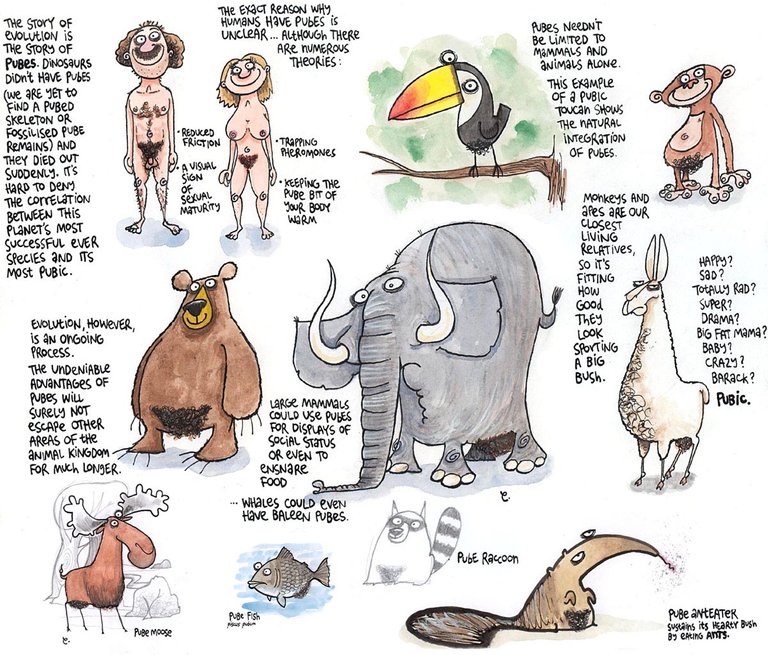Do you shave your PUBES?

After puberty, pubic hair begins to surround our external genitalia. But with hair removal and grooming becoming a popular personal practice, is it really the best idea to shave or wax down there or is a full bush the way to go?

Humans lost most of their thick body hair around seventy thousand to one hundred and twenty thousand years after the last ice age, but despite becoming mostly bare, being retained plentiful hair in our armpits and crotches becoming the only mammalian species in the world to have long course pubic hair. Researchers hypothesize that pubic hairs after puberty as a visual signal to potential partners that one is ready to mate, while the bushes itself act as protection from friction during sexual intercourse.
Another theory involves sweat. Humans have two types of sweat glands, one type secretes mostly water and salt producing no odor, while the other apocrine glands are found specifically in the armpit and the pubic areas and using the pubic hair follicles secrete fluids rich in proteins, lipids, and pheromones. When bacteria on the skin breakdown these molecules, you get body odor.
We may have evolved to retain these hairs to trap pheromones to be wanted towards potential mates. This is further supported by the fact that women release different pheromones during ovulation signaling fertility in order to become more attractive to others.
But a study of over 1,000 students in America found that 96% of females and 87% of males had either partially or completely removed pubic hair within the past month. As pubic hair its course, the regrowth after any type of grooming can be irritating to the skin. In fact 75% of people sorting out their pubes have experienced genital itching, and 40% have experienced a rash of some sort. Shaving and waxing can create here that grows inward instead about to the surfers resulting in red and inflamed raised bumps.
Interestingly, the incidents of pubic lice has actually decreased due to shaving and waxing. However these practices can also create microscopic abrasions on the skin, which can become infected and even transmit a myriad of sexually transmitted diseases. It has been theorized that pubic hair removal also correlates directly with the rise of gonorrhea, chlamydia and HPV infections.
Even with infections put aside, the most common genital injuries reported in American emergency rooms are a direct consequence of pubic hair removal. At the end of the day, no matter what grooming trends are currently popular, there's no harm in growing that bush the way that nature intended.
Reference :
- http://cms.sagepub.com/content/18/5/291.short
- http://onlinelibrary.wiley.com/doi/10.1111/j.1743-6109.2009.01307.x/abstract
- http://www.jpagonline.org/article/S1083-3188(06)00060-X/pdf
- http://www.independent.co.uk/news/zoologist-claims-sexual-preference-led-the-naked-ape-to-lose-its-hair-1581177.html
- http://blogs.scientificamerican.com/bering-in-mind/a-bushel-of-facts-about-the-uniqueness-of-human-pubic-hair/
- http://www.livestrong.com/article/207980-reasons-for-pubic-hair/
- http://saylor.org/site/wp-content/uploads/2010/11/Sweat-Gland.pdf
- http://www.huffingtonpost.com/roger-friedland/women-pubic-hair_b_875465.html
- http://onlinelibrary.wiley.com/doi/10.1111/jsm.12763/epdf
- http://cms.sagepub.com/content/18/5/291.short
- http://www.ncbi.nlm.nih.gov/pmc/articles/PMC2564756/
- http://www.cmaj.ca/content/early/2014/09/08/cmaj.140198.full.pdf
- http://cid.oxfordjournals.org/content/45/3/e29.long
- http://www.ncbi.nlm.nih.gov/pmc/articles/PMC3559025/
- http://www.ncbi.nlm.nih.gov/pubmed/24486227